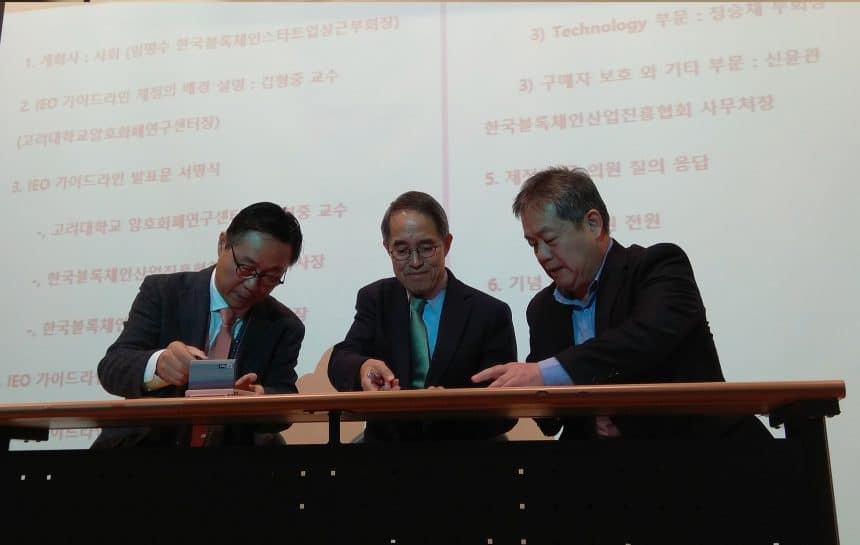South Korean blockchain associations and Korea University Thursday proposed adopting the initial exchange offering (IEO) as a tool for blockchain producers and platforms to raise capital.
Investors might regard the IEO safer than the initial coin offering (ICO) because cryptocurrency exchanges screen technical viability and business potential of blockchain platforms before listing and trading coins on the exchange.
Currently, cryptocurrency exchanges are not responsible for risk as they only trade coins issued by blockchain platforms. They do not screen financial and technical health of the issuers. Investors buy their coins only after reviewing the White Papers the issuers publish.
The Korea Blockchain Startup Association, the Korea Blockchain Industry Promotion Association, and the Korea University’s cryptocurrency research center Thursday unveiled the guideline on the IEO. They announcement came after their joint research.
Under the plan, exchanges will decide whether to sell coins only after screening technical and financial health of blockchain platforms.
This screening would filter out unviable blockchain producers, prevent them from issuing coins, and thus help upgrade investors’ confidence.
Those getting Level 1 certificate or scoring more than 700 points would be able to issue 1.5 billion won (about $1,400,000) or those getting Level 2 or scoring less than 700 points could raise less than $1,400,000, according to the guideline.
The guideline is in line with the government’s purported plan that blockchain startups might raise up to 1.5 billion won in crowdfunding from next January.
Under the guideline, exchanges would check 166 items in five categories, including technical viability, security, compliance, investor protection, and commercial viability.
The guideline is similar to those applying to companies planning initial public offering (IPO). The IPO issuers are subject to the Korean Capital Market Law under the purview of the Financial Supervisory Service. Currently, ICO is not permitted in South Korea.
A KBSA executive said the guideline would have no legal binding but it would service as a reference to the government in formulating policies. It is believed that these associations issued the guideline after consulting with financial regulators.
관련
기사제보 및 보도자료: press@blockmedia.co.kr
▶ 블록미디어 유튜브 바로가기 https://www.youtube.com/blockmedia
▶ 블록미디어 텔레그램 바로가기 https://t.me/blockmedia
▶ 블록미디어 페이스북 바로가기 https://www.facebook.com/blockmediakorea/

